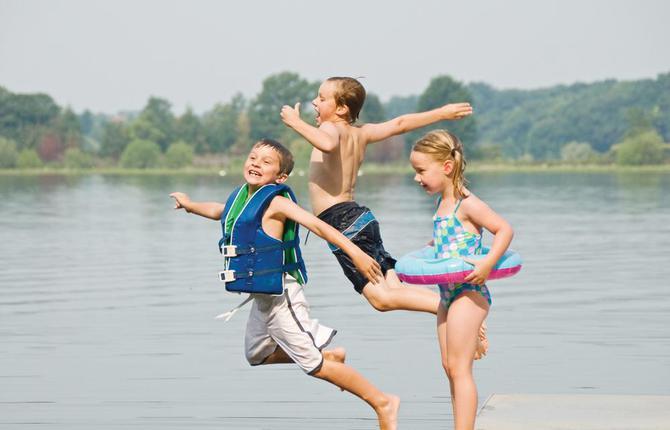
Preventing homesickness
Although parents may worry that their children will be homesick at camp, in fact, most children make the transition easily and happily. Those who do experience some pangs of homesickness quickly overcome the problem when an empathetic counsellor urges them to think positively about camp and join an activity with their new friends. Only a small minority of campers, about 7 per cent, require extended, special attention from the counsellor or director. In pre-camp sessions, counsellors learn how to help homesick campers.
Before your child leaves home, you can prepare him to ensure that he is among the 93 per cent of campers who are enjoying the great adventure and never waste a moment of precious camp time wishing that they were home.
Here are some suggestions to prepare your child for a successful transition between home and camp.
- If your child has never slept away from home, arrange a trial weekend at a friend’s or grandparents’ house.
- Make camp as familiar as possible. Together with your camper, visit the camp’s website, read the brochure or view the promotional video or DVD. Make a list of your camper’s questions about the food, sleeping accommodation, cabin arrangements, washroom facilities or any aspect of the camp and its program, then call the director for answers. Some directors are willing to visit your home. Attend any pre-season gathering for new campers. If your child is apprehensive, enquire if there is another new camper of similar age in your area whom your child could meet before camp.
- Speak positively about the upcoming experience; however, especially if you are a former camper with glorious memories of your own camp experience, avoid describing camp in such glowing terms that you raise too high, unrealistic expectations for your child. Also, if your camper is apprehensive, don’t make promises such as, “If you don’t like it dear, I will come immediately and bring you home.” Assume that your camper is going to stay for the entire contracted time.
- Help your camper towards independence at camp. Teach him to make his bed and sort his laundry. Establish routines for changing socks and underwear. Send your daughter with a hairstyle that she can keep tidy and tangle-free by herself.
- Involve your camper in packing. Stick to the list provided by the camp. Ask your camper if she wants to pack a picture of the family and/or the family pet. Some campers are reassured with their family’s picture close at hand. For others, this will make them sadder.
- Send stamped self-addressed envelopes or teach your child how to address an envelope. Expect to communicate with your camper by letter. Most camps ban cell phones and discourage email or fax messages. Constant communication with home gets in the way of learning to be self-reliant and independent, prime goals of the camp experience.
- If you are anticipating homesickness, advise the director who will in turn inform the counsellor to be particularly attentive in the first few crucial days. Don’t however inadvertently plant the seed in your child’s mind. A well-meaning parent may create a problem where none exists. Remember the great majority of children do not suffer prolonged homesickness.
- On departure day, long, drawn-out, good byes are agonizing for the camper and the parents. A brief hug, wave and happy smile are best.
- Write to your camper early and often. Some conscientious parents write the first letter before the camper leaves home. Several short letters arriving over a period of days is preferable to one very long letter. Avoid including any unhappy news; such information is best delivered in person. Avoid describing events enjoyed by siblings at home that are so exciting the camper will be envious.
- Seek advice from the camp director on whether a visit is appropriate. Some camps, for a variety of reasons, have eliminated all visitors’ days. Others allow visitors on specific days for a limited time. A visit allows you to become familiar with the people and places you will hear about in stories over the winter. However, if your child has had difficulty settling in, your visit may cause her to regress and your arrival will not be welcomed by staff who have worked long and hard to help your camper adjust to a new experience.
With a little preparation, your child’s time at camp will be a memorable, joyous, worthwhile experience.





